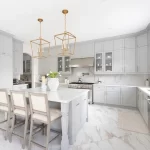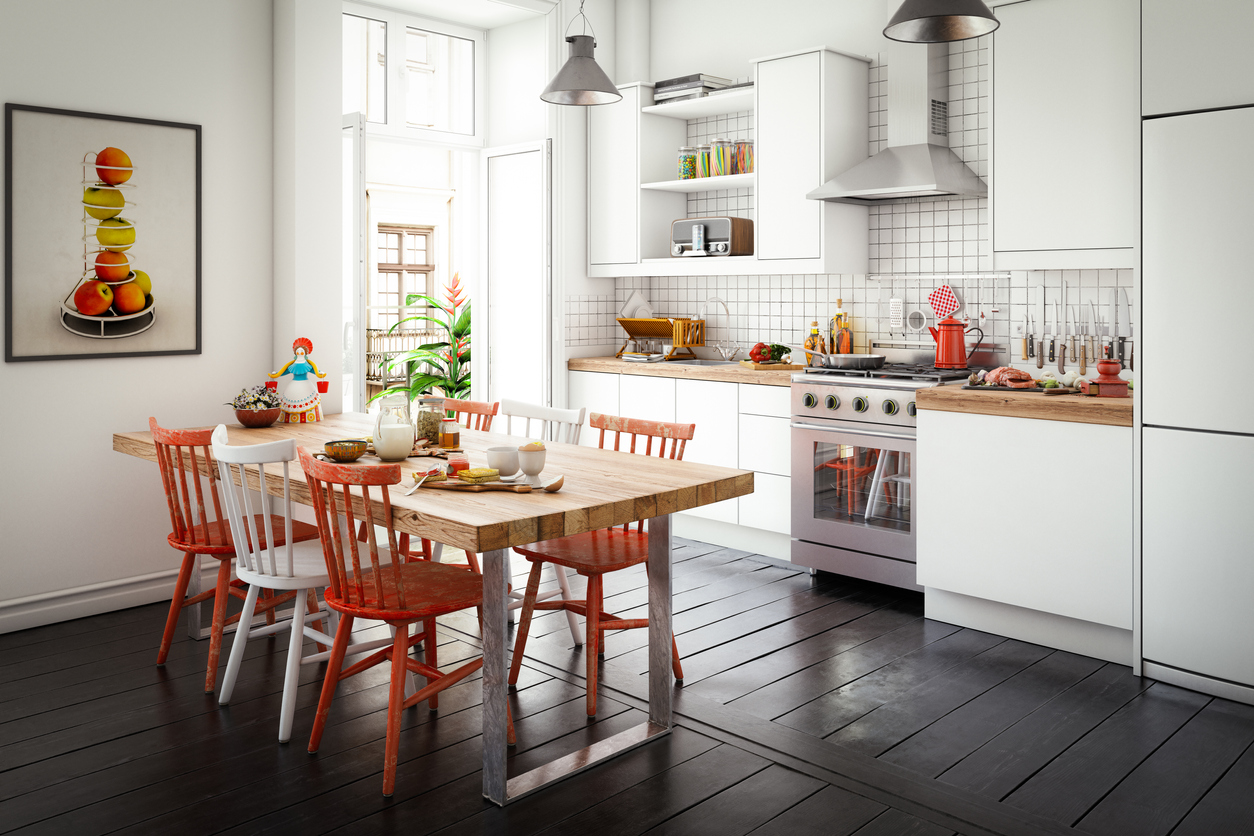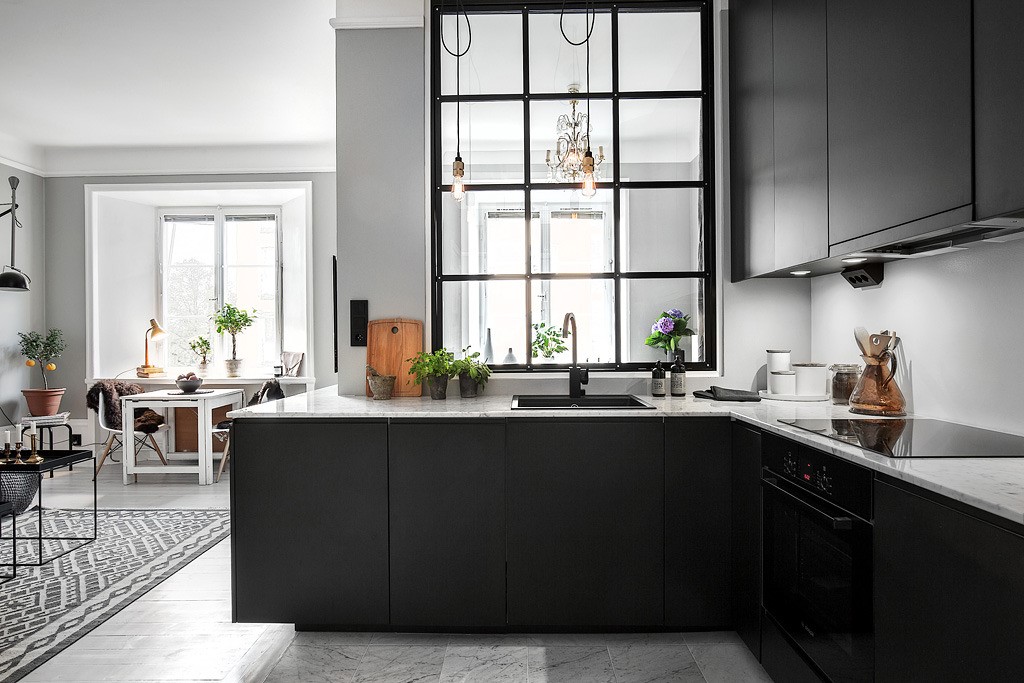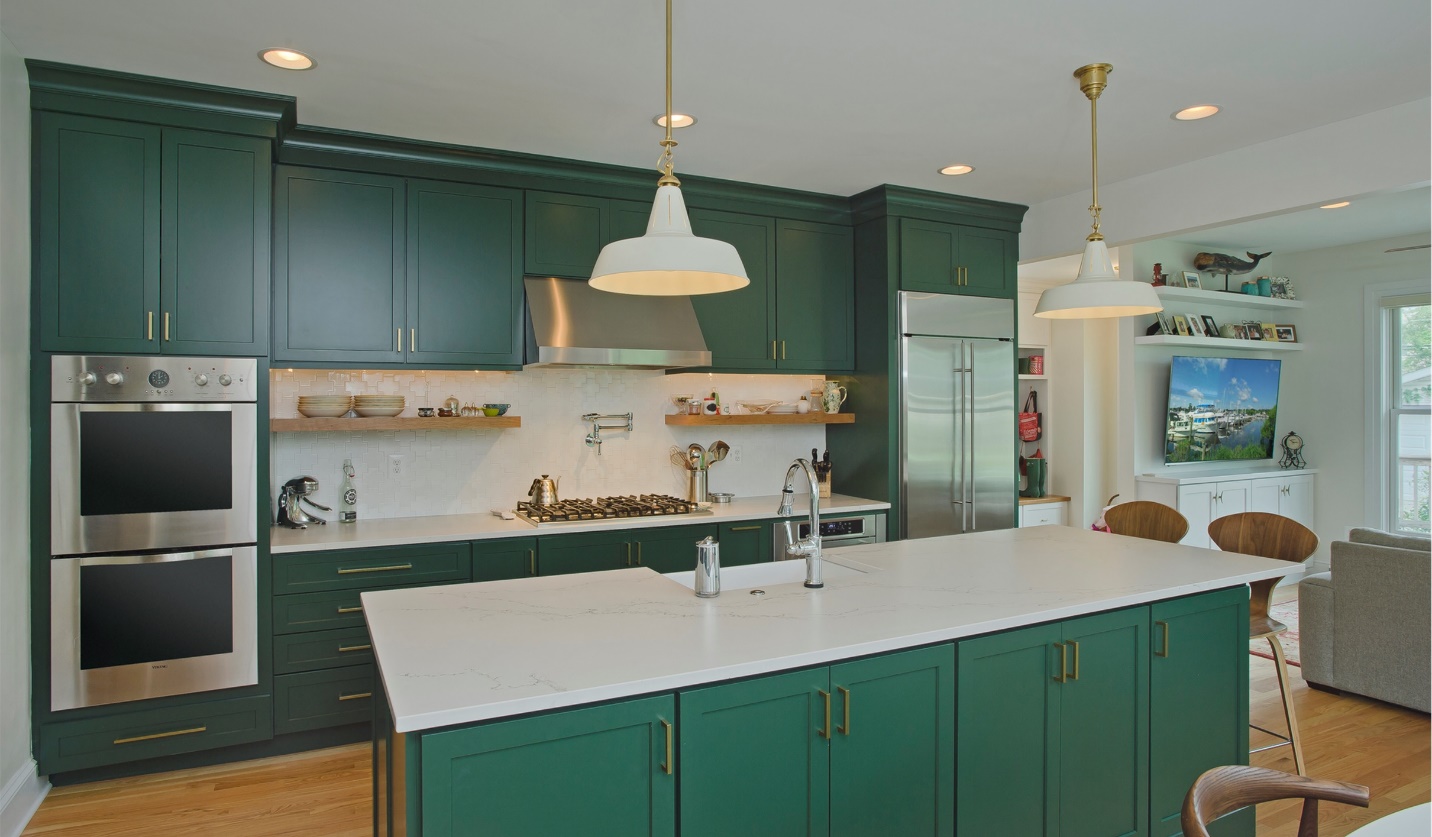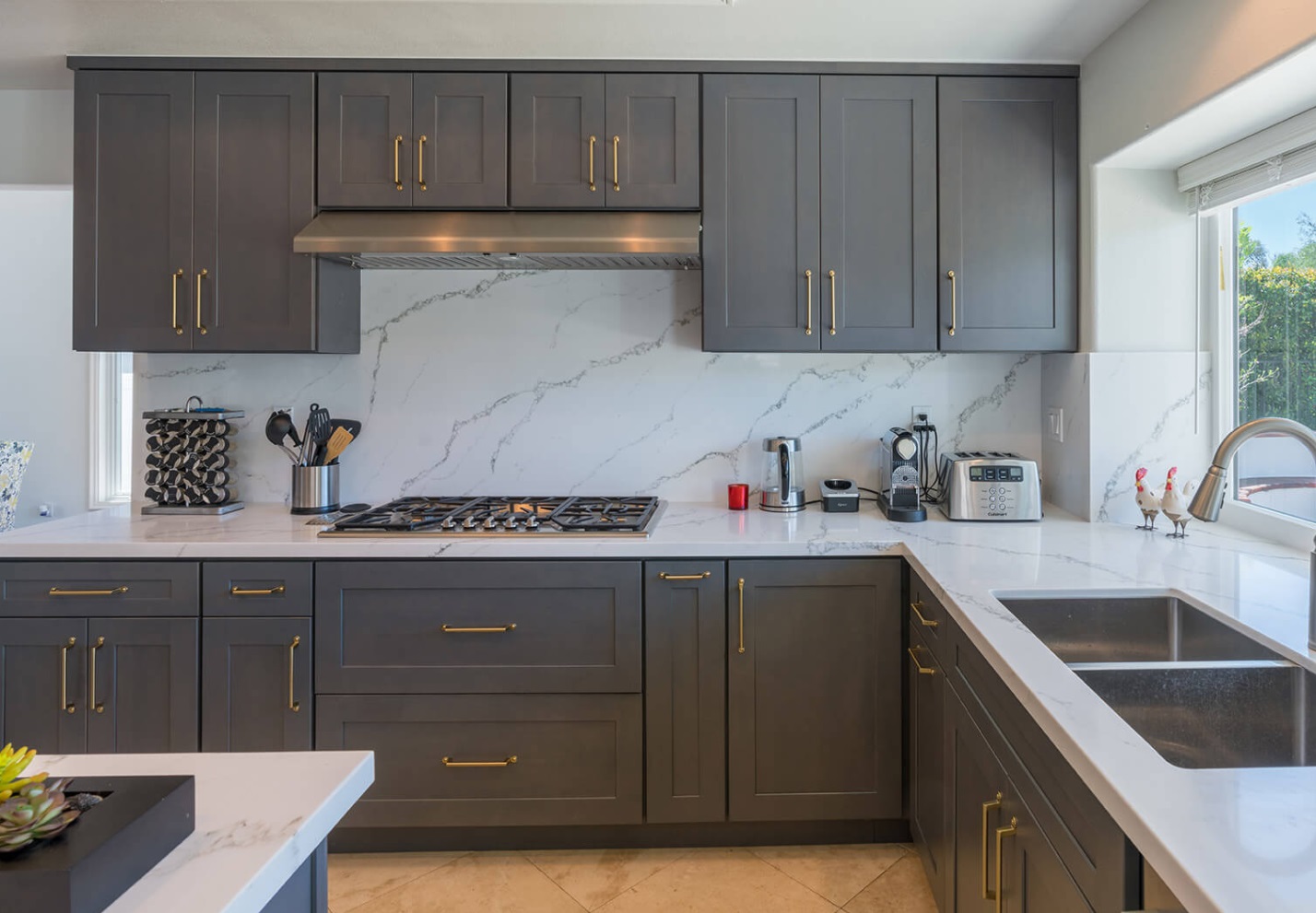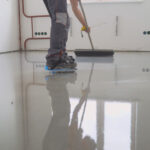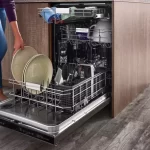Eco-Friendly Innovations: Sustainable Materials Transforming Modern Kitchen Design
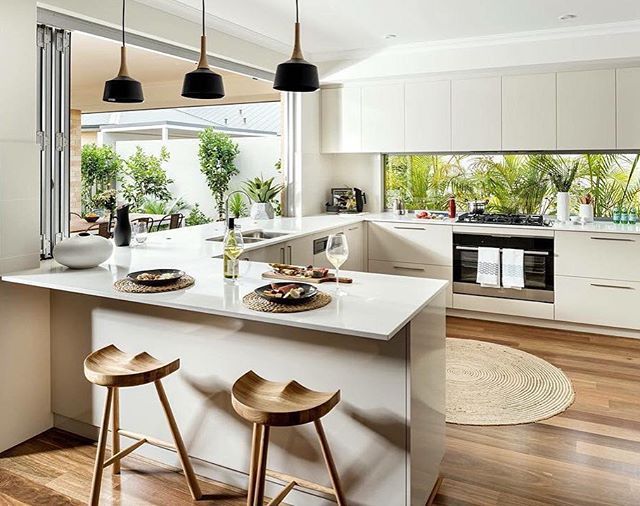
Introduction
As the heart of the home, the kitchen is not just a place for culinary exploration but also a prime candidate for sustainable innovation. In recent years, there has been a significant shift towards eco-friendly homes, with modern kitchen design at the forefront of this movement. This article delves into the various sustainable materials and technologies that are shaping modern kitchens, offering both aesthetic appeal and environmental benefits.
The Rise of Green Materials in Kitchen Design
The selection of materials plays a crucial role in the ecological footprint of a kitchen. Here are some of the most promising sustainable materials:
● Recycled Materials:
- Countertops: Recycled glass countertops are not only stunning but also incredibly durable, offering a greener alternative to traditional materials.
- Cabinetry: Reclaimed wood cabinets bring warmth and history to modern kitchens, reducing the need for new timber harvesting.
● Sustainable Wood Options:
- Bamboo: Known for its rapid growth and sustainability, bamboo makes for excellent flooring and cabinetry.
- Sustainably Sourced Hardwoods: Choosing certified sustainably sourced woods can help preserve our forests while still achieving a high-end look.
● Bioplastics and Other Innovations:
- New materials such as bioplastics are being developed for use in kitchen hardware and accessories, providing a lower carbon footprint compared to conventional plastics.
Energy Efficiency and Modern Kitchens
Energy efficiency is another cornerstone of the modern eco-friendly kitchen, with a focus on reducing power consumption and minimizing waste:
● Energy-Efficient Appliances:
- Modern kitchens are increasingly equipped with energy-efficient appliances that reduce energy consumption, such as refrigerators, dishwashers, and ovens that meet or exceed Energy Star standards.
● LED Lighting Solutions:
- LED lighting is a must-have in modern kitchens for its lower energy usage and longer lifespan compared to traditional lighting options. Strategic placement of LED lights can enhance the functionality and ambiance of the kitchen.
Water-Saving Technologies in Kitchen Design
Conserving water is essential in modern kitchen design, particularly in areas affected by drought or those aiming for greater sustainability:
● Advanced Faucets and Dishwashers:
- Innovative faucets with motion sensors and efficient dishwashers are becoming staples in modern kitchens, significantly reducing water wastage.
● Water Recycling Systems:
- Greywater systems reuse water from sinks and dishwashers for gardening and flushing toilets, further optimizing water use.
Incorporating Living Green into Kitchen Spaces
Embracing green living extends beyond the materials and technologies used in modern kitchens—it also includes integrating elements of nature directly into the kitchen space.
● Vertical Gardens and Herb Walls:
- Aesthetic and Functional: Vertical gardens not only beautify the space but also provide fresh herbs and greens at your fingertips. They can be installed on any free wall or even hang from the ceiling, offering both decoration and practical benefits.
- Air Quality: Plants naturally purify the air, reducing pollutants and providing fresher air in the kitchen.
● Composting Solutions for Waste Reduction:
- Under-Counter Composting Bins: Modern kitchen designs often include built-in composting solutions that make it easy to reduce food waste and contribute to a healthier environment.
- Benefits: Composting enriches the soil, reduces the need for chemical fertilizers, and decreases methane emissions from landfills.
Design Tips for an Eco-Friendly Kitchen
Designing an eco-friendly kitchen requires careful consideration of materials, layout, and appliances. Here are some tips to ensure your kitchen is both beautiful and sustainable:
● Choosing the Right Materials and Appliances:
- Sustainability Labels: Look for products and materials certified by reputable environmental organizations.
- Energy Efficiency: Opt for appliances that have high energy efficiency ratings to reduce both your carbon footprint and energy bills.
● Aesthetic Considerations:
- Natural Palettes: Colors and materials that reflect nature can enhance the eco-friendly feel of your kitchen. Think stone, wood, and neutral colors.
- Open Spaces: An open-plan kitchen not only looks modern but also improves ventilation, reducing the need for artificial air conditioning.
Conclusion
Modern kitchens are more than just areas for cooking; they are a testament to how design and technology can intersect with environmental consciousness. By choosing sustainable materials, embracing energy-efficient appliances, and incorporating elements of nature, homeowners can create a space that is both innovative and mindful of the planet’s resources.
Call to Action
If you’re considering remodelling your kitchen or simply want to make it more sustainable, now is the time to explore these eco-friendly options. Dive deeper into sustainable kitchen design by consulting with experts or visiting dedicated resources for more ideas and guidance.
This comprehensive approach not only meets the SEO requirements with strategically placed keywords and engaging content but also provides valuable information to readers, encouraging them to adopt more sustainable practices in their kitchens. When you’re ready, I can provide additional insights or help you expand on specific sections of this article.

I am Scott Miller and my love is writing about home improvement. I write mostly about home ideas, but also share some tips and tricks that can make your life easier when it comes to getting things done in the house.

